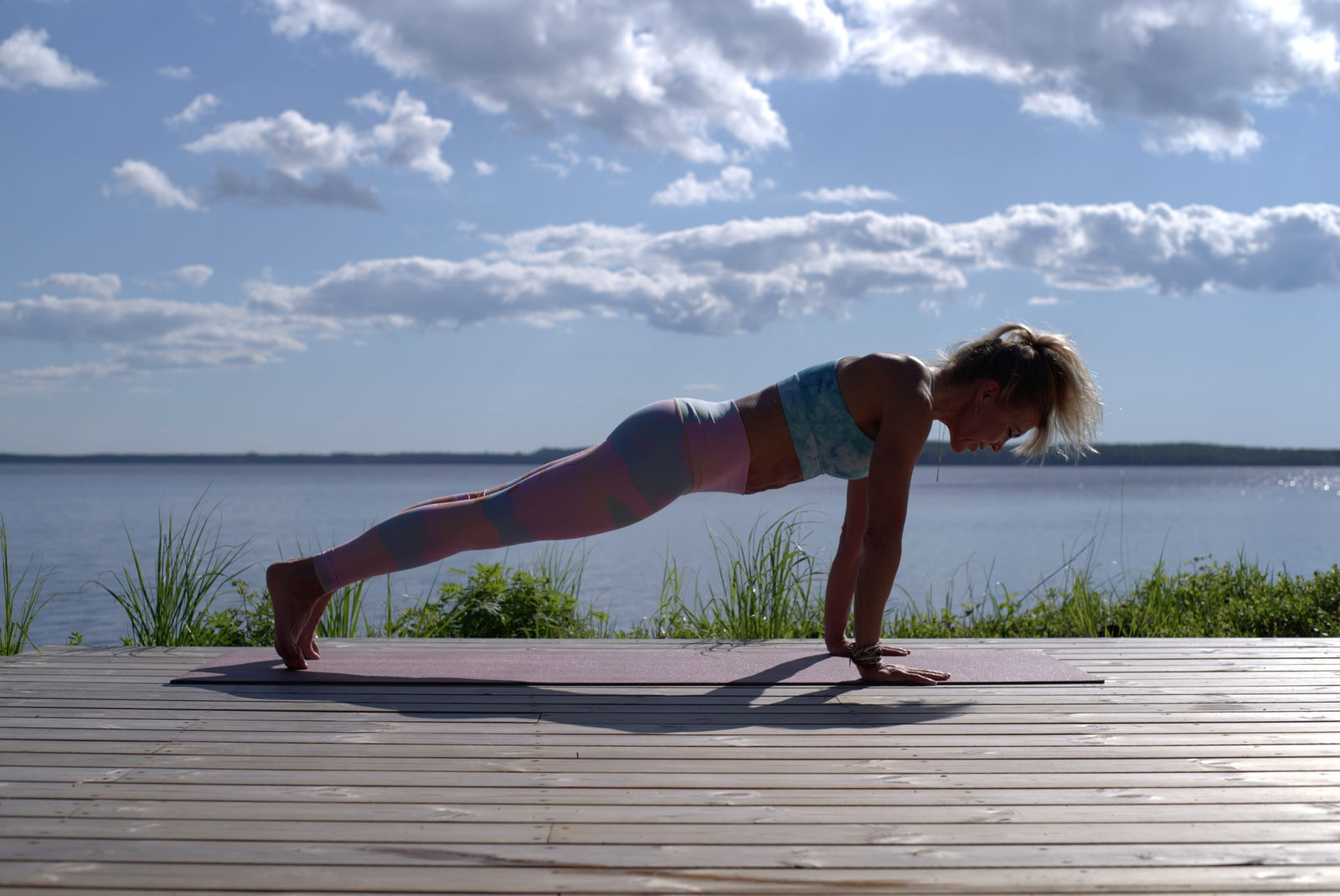Making sure you prioritize sleep and recovery is important not just for feeling rested and mental well-being but for overall health and fighting off infections.
If you don't get enough sleep you risk losing desire for sex, becoming obese, and getting colds and other infections. You could even die sooner than you would if you get enough sleep. Those should be reasons enough for prioritizing sleep.
You may have heard adults should get seven to nine hours of sleep each night. But most people get fewer than seven hours, says the U.S. Centers of Disease Control.
“As a nation we are not getting enough sleep,” according to Dr. Wayne Giles, director of the CDC’s Division of Population Health [1].
The CDC has even called people not sleeping enough a national health problem, though it is a problem for much of the rest of the world too.
Sleep is vitally important to sleeping well and succeeding in life, says a study in the journal Rand Health Quarterly[2]. The study reports:
The Centers for Disease Control and Prevention (CDC) in the United States has declared insufficient sleep a “public health problem.” Indeed, according to a recent CDC study, more than a third of American adults are not getting enough sleep on a regular basis.
However, insufficient sleep is not exclusively a U.S. problem, and equally concerns other industrialised countries such as the United Kingdom, Japan, Germany, or Canada. According to some evidence, the proportion of people sleeping less than the recommended hours of sleep is rising and associated with lifestyle factors related to a modern 24/7 society, such as psychosocial stress, alcohol consumption, smoking, lack of physical activity and excessive electronic media use, among others.
This is alarming as insufficient sleep has been found to be associated with a range of negative health and social outcomes, including success at school and in the labour market. Over the last few decades, for example, there has been growing evidence suggesting a strong association between short sleep duration and elevated mortality risks.
"Elevated mortality risks" means you risk dying sooner than you would if you had had enough sleep.
What happens if you don't sleep enough
The VALI blog had a posting about some of the things that can happen when you constantly do NOT get enough sleep: [3, 4, 5, 6]:
Chronic illnesses
According to studies, people who clock in five hours or less a night frequently also increase their risk for diabetes. Sleep deprivation may lead to a higher likelihood of type 2 diabetes when the body changes the way it breaks down glucose used for energy.
Lack of sleep can also increase the risk of cardiovascular diseases. It increases the heart rate, blood pressure, and some chemicals in the body that are linked to inflammation and thus puts extra stress on the heart.
Weaker cognitive functions
Trying to memorize those terms for an exam or your spiel for a work presentation overnight? Unfortunately this may be counterproductive as losing sleep can affect your ability to memorize, remember, think and process information.
Weak immune system
Notice yourself easily catching colds, flu and other illnesses so easily? Then check if you’re sleeping well enough. And if the answer is no, then you may have a weakened immune system from lack of sleep.
What is sleep hygiene, and how do you practice it?
Gaining weight
Sleeping less means more pounds. According to studies, people who constantly clocks in less than seven hours of snooze every night tend to put on more weight. Sleeplessness can increase the risk of obesity.
Lower libido
Both men and women could suffer from lower libido when they don’t sleep enough. Furthermore, men who suffer from sleep apnea, or a sleep disorder that makes breathing difficult and thus interrupts sleep, have been observed to have lower testosterone levels. This leads them to lose interest in sex.
Decreased fertility
Being constantly deprived of sleep can cause trouble in conceiving a baby. Apart from lower libido, sleeplessness in both men and women can make it difficult for couples planning to build a family because fewer reproductive hormones are secreted.
Lack of alertness
Missing even just an hour and a half of sleep can already impact your alertness and how you feel.
Sleepiness throughout the day
Not having enough sleep can make you yawn throughout the day, feeling very sleepy, tired and uninspired.
Conflicts and relationship tension
Bad mood and short temper can cause conflicts and may impact your relationships and interactions with people around you.
Higher likelihood for accidents
Drowsiness and fatigue kill. The National Highway Traffic Safety Administration reports that inattentive driving causes thousands of car crashes, injuries and driving-related fatalities each year.
Mental health
Sleep deprivation doesn’t just mean moody, grumpy, irritability and short temper. If it happens often, it may also lead to long-term mood disorders such as anxiety, clinical depression and general loss of motivation. People suffering from clinical depression have also been found to have irregular sleeping patterns and clock in five hours or less.
That blog posting also lists proper sleep amounts for people of the various ages.
So how do you prioritize sleep?
For those who get healthy, restful sleep in sufficient quantities, the bed is an inviting, comfortable place. Set your bed aside as a place where you only sleep and have sex.
Any other activity, like reading or watching TV, you should reserve for the living spaces of your home.
As the VALI blog posting [7] says, a good night's sleep starts with sleep hygiene or practices. The first thing is to practice a good routine that works for you that helps you get to sleep. The CDC says [8] good sleep hygiene consists of:
- Going to bed around the same time every night
- Making the bedroom dark, quiet, relaxing, and at a comfortable temperature—for both you and the baby if you have one and if the baby sleeps in another room
- Removing electronic devices from the bedroom and not using them too soon before sleep
- Avoiding large meals, coffee, and alcohol before going to bed
- And getting exercise in the daytime, but not too soon before bedtime
Try a natural sleeping aid
Some people don't want the heavy effects of a sleeping pill. But there are natural sleeping pill alternatives that don't cause the unwanted side effects, including VALI Sleep Well [9].
VALI Sleep Well [10] has 3 mg of melatonin plus several other substances that are very beneficial in getting a good night's sleep.
The nine other VALI Sleep Well ingredients formulated for their calming, sleep-inducing qualities are:
- Magnesium, to relieve insomnia and decrease the stress hormone cortisol that can keep you awake. Magnesium helps muscles relax.
- 5-HTP, an amino acid, 5-Hydroxytryptophan, that helps the body produce serotonin, which helps regulate the sleep cycle. 5-HTP also improves mood and eases stress and anxiety so you can fall asleep faster.
- GABA, a neurotransmitter that eases anxiety and reduces stress to treat insomnia. Scientists believe it is essential for deep sleep.
- Passion flower extract, an herb that calms and aids falling asleep and maintaining restful sleep.
- Chamomile flower extract, an herb known for its ability to calm stress and anxiety, and relax muscles. It is the main ingredient in "sleepy time" tea.
- Valerian extract, a root extract aids sleep and treats restlessness, nervousness, and anxiety. Sleep Well’s valerian extract is deodorized to minimize the unpleasant smell.
- L-theanine, an amino acid that reduces stress, calms the body, stimulates the production of GABA, and helps you stay asleep longer.
- Lemon balm extract, a member of the mint family, it is a calming herb that reduces stress, anxiety, eases pain, and promotes healthy sleep.
Conclusion
Follow the sleeping tips and set your bed aside as a place where you only sleep or have sex. If all that doesn't work, try VALI Sleep Well for a while. It just may help you prioritize sleep and recovery from the sometimes stressful phenomena of life.
Sources:
[1] https://www.cdc.gov/media/releases/2016/p0215-enough-sleep.html
[2] https://www.ncbi.nlm.nih.gov/pmc/articles/PMC5627640/
[3] https://www.nhs.uk/live-well/sleep-and-tiredness/why-lack-of-sleep-is-bad-for-your-health/
[4] https://www.sleephealthsolutionsohio.com/blog/10-effects-of-long-term-sleep-deprivation/
[5] https://health.clevelandclinic.org/happens-body-dont-get-enough-sleep/
[6] https://www.valiup.com/blogs/vali-blog/what-happens-when-you-dont-sleep-enough
[7] https://www.valiup.com/blogs/vali-blog/some-facts-about-the-sleep-aid-melatonin
[8] https://www.cdc.gov/sleep/about_sleep/sleep_hygiene.html
[9] https://www.valiup.com/products/vali-sleep-well-natural-sleep-aid








